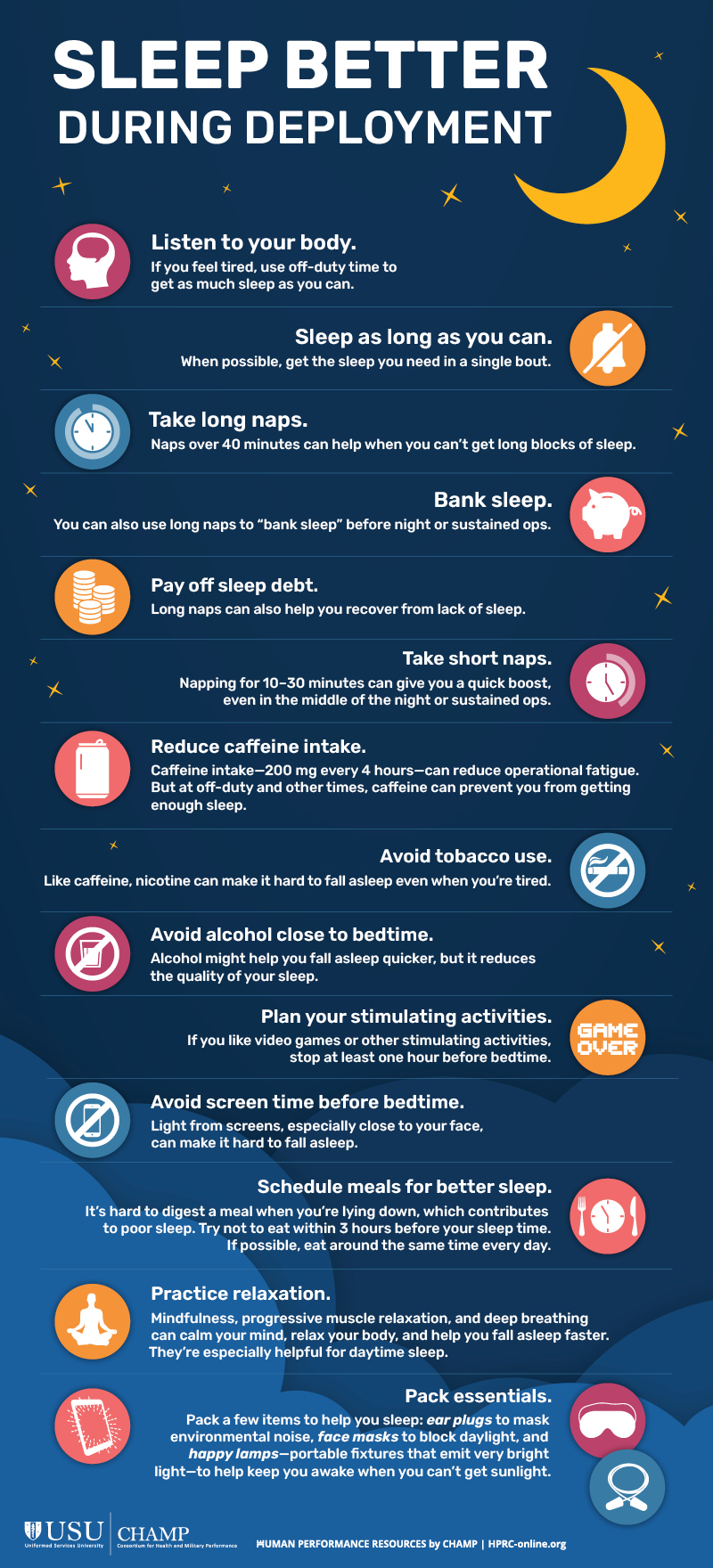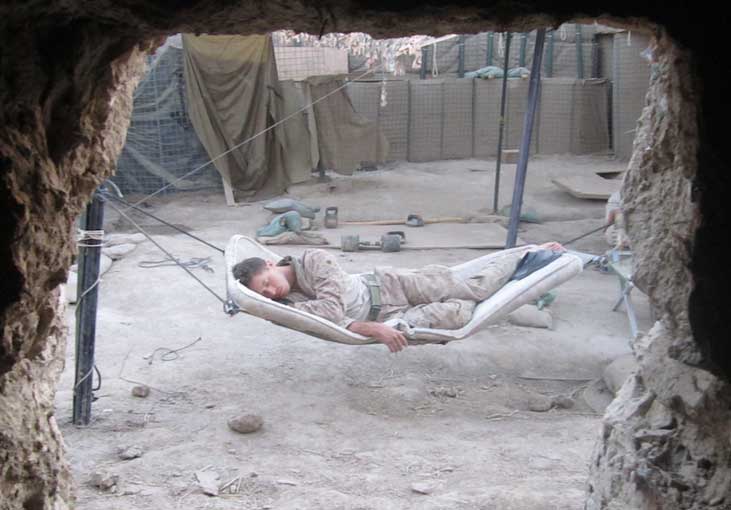Sleep is essential to military health and performance. But during deployment—when optimal physical and mental performance are needed—Service Members often struggle to get adequate sleep. This infographic lists practical tips to help you optimize your sleep readiness during deployment. Other HPRC resources about strategic napping, as well as sleep debt and sleep banking, can help you apply these tips. And for help building healthy sleep habits after deployment, try HPRC’s “Sleep Habits Self-Check.”

Sleep better during deployment
- Listen to your body. If you feel tired, use off-duty time to get as much sleep as you can.
- Sleep as long as you can. When possible, get the sleep you need in a single bout.
- Take long naps. Naps over 40 minutes can help when you can’t get long blocks of sleep.
- Bank sleep. You can also use long naps to “bank sleep” before night or sustained ops.
- Pay off sleep debt. Long naps can also help you recover from lack of sleep.
- Take short naps. Napping for 10–30 minutes can give you a quick boost, even in the middle of the night or sustained ops.
- Reduce caffeine intake. Caffeine intake—200 mg every 4 hours—can reduce operational fatigue. But at off-duty and other times, caffeine can prevent you from getting enough sleep.
- Avoid tobacco use. Like caffeine, nicotine can make it hard to fall asleep even when you’re tired.
- Avoid alcohol close to bedtime. Alcohol might help you fall asleep quicker, but it reduces the quality of your sleep.
- Plan your stimulating activities. If you like video games or other stimulating activities, stop at least one hour before bedtime.
- Avoid screen time before bedtime. Light from screens, especially close to your face, can make it hard to fall asleep.
- Schedule meals for better sleep. It’s hard to digest a meal when you’re lying down, which contributes to poor sleep. Try not to eat within 3 hours before your sleep time. If possible, eat around the same time every day.
- Practice relaxation. Mindfulness, progressive muscle relaxation, and deep breathing can calm your mind, relax your body, and help you fall asleep faster. They’re especially helpful for daytime sleep.
- Pack essentials. Pack a few items to help you sleep: ear plugs to mask environmental noise, face masks to block daylight, and happy lamps—portable fixtures that emit very bright light—to help keep you awake when you can’t get sunlight.
USU – Uniformed Services University
CHAMP – Consortium for Health and Military Performance
Human Performance Resources by CHAMP – HPRC-online.org
Published on: July 28, 2023
